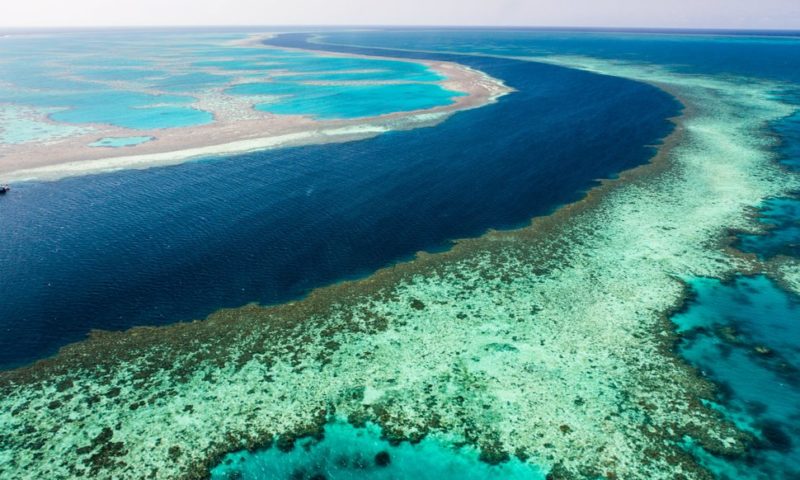New research shows that the world’s largest coral reef system isn’t producing enough young corals to replenish older ones killed by bleaching events.
THE FUTURE OF THE world’s largest coral reef system keeps getting dimmer.
Australia’s Great Barrier Reef doesn’t have enough baby corals to replace the adult corals that died during back-to-back bleaching events in recent years, according to new research.
New corals settling on the reef declined by 89% after the “unprecedented loss” of adult corals in 2016 and 2017, according to Terry Hughes, the lead author of a study on the subject published Wednesday in the journal Nature.
Researchers counted how many adult corals survived the bleaching events and how many new corals they produced in 2018. One type of coral saw a 93% drop in replenishment rates compared to previous years.
Bleaching events happen when corals expel the algae that live inside them when they are stressed from certain factors, like ocean temperatures that are too hot or cold. These events don’t typically kill the corals unless they are severe.
The Great Barrier Reef experienced four mass bleaching events in the past 20 years due to above-average sea temperatures. Global warming has severely compromised the reef’s resilience, according to the authors.
Hughes, who is the director of the Australian Research Council Center of Excellence for Coral Reef Studies at James Cook University in Australia, said that the reef’s recovery depends on whether it sees another bleaching event in the coming decade.
The Great Barrier Reef stretches over 1,250 miles off the northeast coast of Queensland and contains 400 kinds of coral.
As global warming intensifies, scientists believe the recovery time between bleaching events will shrink, further straining the corals.
“It’s highly unlikely that we could escape a fifth or sixth event in the coming decade,” co-author Morgan Pratchett said in a statement. “We used to think that the Great Barrier Reef was too big to fail – until now.”
The majority of the world’s coral reefs could disappear as soon as 2030 due to global warming, according to the Intergovernmental Panel on Climate Change.
“There’s only one way to fix this problem,” Hughes said, “and that’s to tackle the root cause of global heating by reducing net greenhouse gas emissions to zero as quickly as possible.”

